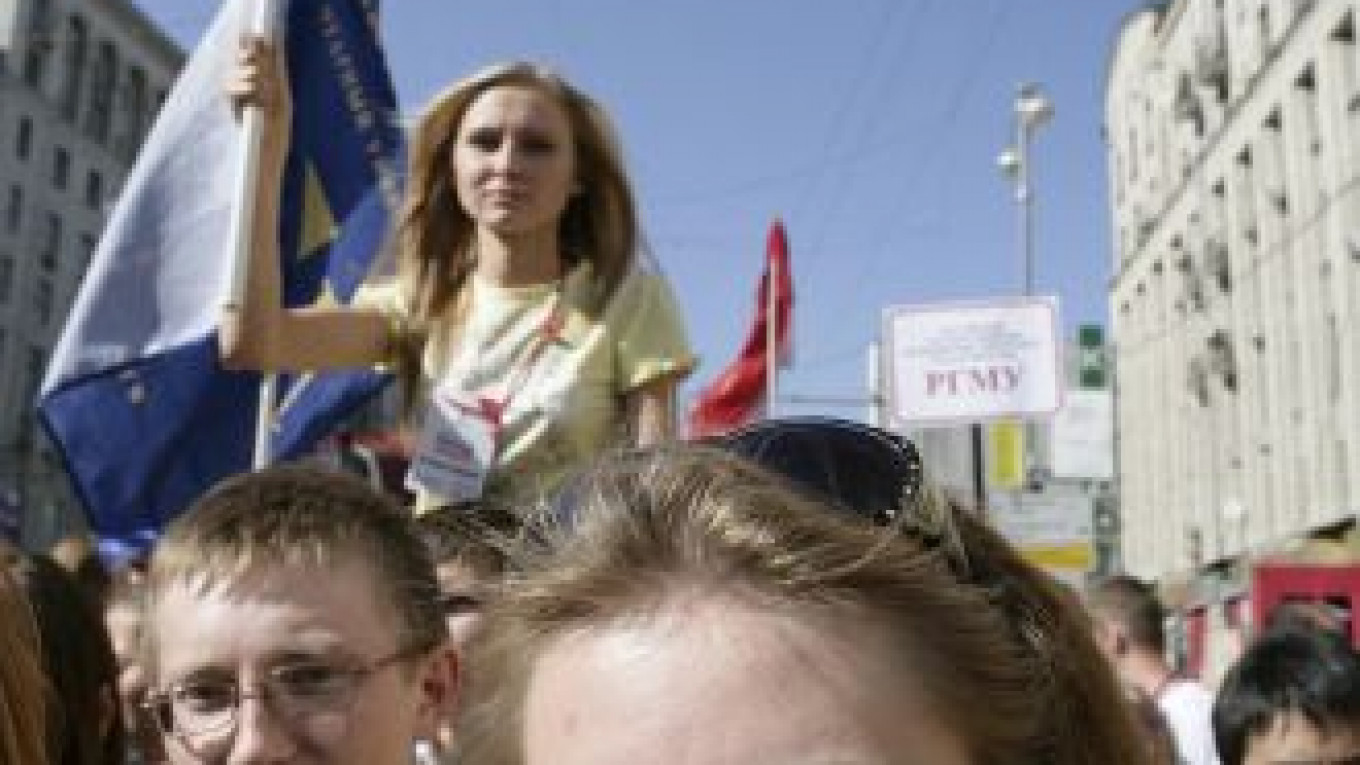When it comes to Russian college students' career aspirations, Gazprom's gas fields might as well be described as the fields of dreams, according to an annual ranking released Thursday by the Universum consulting firm.
The state-owned gas giant was rated the most attractive employer by business students, with Sberbank and consulting firm McKinsey & Company taking second and third places. Gazprom also placed first in a survey of engineering students, followed by Rosneft and LUKoil. Those studying information technology chose Google, Microsoft and Intel as their preferred potential employers.
Despite the domination of state companies in Universum's Ideal Employers 2013 ranking for Russia, the firm's experts noted that interest in working for such companies is on the decline. Meanwhile, interest in international employers is rising, with more of them on the top of this year's list as compared to last year.
"A student from a good institute has a lot to choose from now," explained Andrei Khrupa, Universum's country manager in Russia.
Universum surveyed 10,439 respondents from 72 of Russia's leading universities between December and March. The finished ranking is split into business, engineering and IT categories.
The top three characteristics that Russian students look for in employers are opportunities for professional training and development, a competitive base salary and the possibility of earning a higher salary in the future, according to the ranking.
These most favored characteristics are the same as they were last year, though Universum tracked a shift in interest from state companies to international players.
Lyubov Kuznetsova, a department head at the Penny Lane Personnel recruiting agency, disagreed that state companies were losing popularity. Interest in these companies was actually higher than in 2012, she said.
"What's more likely is that students are aiming to get a line in their resume that shows they have worked at a large company, so that later they can use these skills and competencies in their own business or in a [higher position at a] state company," Kuznetsova wrote. "State companies attract more experienced professionals who have reached certain milestones in their career."
Russian students are different from their American counterparts in that they put more emphasis on the materialistic features of the job, such as pay and job security, Khrupa said. American students are already assured of a decent work package and so pay more attention to softer values like company culture and work-life balance when choosing their employer.
In terms of these values, Russian students' needs are even more fundamental than the other BRIC countries, China and Brazil, which Khrupa said are closer to the American students.
"If we're talking about high-ranking positions, maybe then people start to work for the idea, but if we're talking about students, on average they earn less than they want to, so salary is very important," Khrupa said.
"Right now, we have the so-called Generation Y. They scroll through their phones and browse Vkontakte. Yes, they are a bit different from the older generations, but their basic values are still the same," he added.
In comparison, respondents from the United States chose Google, Walt Disney and Apple as their top picks. French respondents picked LVMH Moet Hennessy and L'Oreal, while Swedes went for Google and Ikea.
Contact the author at e.smirnova@imedia.ru
A Message from The Moscow Times:
Dear readers,
We are facing unprecedented challenges. Russia's Prosecutor General's Office has designated The Moscow Times as an "undesirable" organization, criminalizing our work and putting our staff at risk of prosecution. This follows our earlier unjust labeling as a "foreign agent."
These actions are direct attempts to silence independent journalism in Russia. The authorities claim our work "discredits the decisions of the Russian leadership." We see things differently: we strive to provide accurate, unbiased reporting on Russia.
We, the journalists of The Moscow Times, refuse to be silenced. But to continue our work, we need your help.
Your support, no matter how small, makes a world of difference. If you can, please support us monthly starting from just $2. It's quick to set up, and every contribution makes a significant impact.
By supporting The Moscow Times, you're defending open, independent journalism in the face of repression. Thank you for standing with us.
Remind me later.


